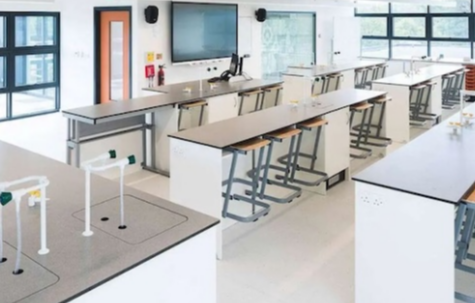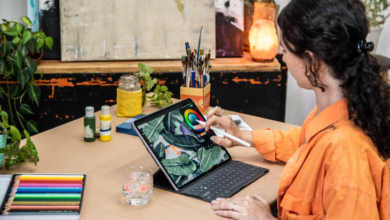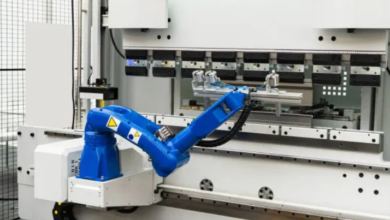Lab Equipment Supply Solutions for Modern Scientific Needs

Lab equipment supply is essential for maintaining efficient and accurate scientific research, testing, and analysis across various industries. It involves sourcing high-quality instruments, consumables, and safety gear to meet the specific needs of laboratories. Reliable lab suppliers provide a wide range of products that ensure precision, compliance, and durability in daily laboratory operations.
Many suppliers offer comprehensive selections, including specialized equipment like HPLC and GC consumables, safety apparel, and chemicals, catering to both research and industrial labs. The ability to procure everything from a single trusted source simplifies logistics and supports uninterrupted workflows.
Choosing the right supplier impacts cost-efficiency, product quality, and access to technical support. Organizations often prioritize suppliers with proven experience and a strong track record in delivering dependable laboratory solutions.
Types of Lab Equipment
Lab equipment includes tools designed to perform specific tasks such as measuring, mixing, analyzing, and ensuring safe handling of materials. Proper selection of equipment supports accurate results and maintains laboratory standards.
Analytical Instruments
Analytical instruments measure physical and chemical properties precisely. Common types include spectrophotometers, which assess light absorption to identify substances, and chromatographs used to separate chemical mixtures.
Balances and pH meters are critical for quantifying mass and acidity levels. These instruments must be calibrated regularly to guarantee accurate data.
Advanced equipment like atomic absorption spectrometers provides elemental analysis, essential in fields such as environmental testing and pharmaceuticals.
Glassware and Plasticware
Glassware offers durability and chemical resistance, making it suitable for heating and mixing reagents. Examples include beakers, flasks, pipettes, and test tubes. These items must be cleaned thoroughly to prevent contamination.
Plasticware is lighter and less breakable, ideal for disposable use or when handling hazardous materials. Types include centrifuge tubes, petri dishes, and microplates.
The choice between glass and plastic depends on the experiment’s chemical needs and temperature requirements. Both types support accurate volume measurement and sample manipulation.
Safety Equipment
Safety devices protect personnel and preserve sample integrity. Essential items include fume hoods that ventilate hazardous gases during chemical work.
Personal protective equipment (PPE) such as gloves, safety goggles, and lab coats prevent exposure to dangerous substances.
Emergency gear like fire extinguishers, eyewash stations, and spill kits should be accessible and maintained regularly to address accidents promptly.
Specialized Laboratory Tools
Specialized tools cater to specific research needs. Microscopes enable detailed observation of microorganisms and cell structures.
Centrifuges separate substances by density through rapid spinning, critical in biochemistry and clinical labs.
Autoclaves sterilize instruments using high pressure and temperature, essential for maintaining sterile conditions in microbiology.
These tools often require technical training and routine maintenance to function effectively.
Lab Equipment Supply Solutions
Efficient lab equipment supply requires attention to sourcing practices, adherence to quality standards, and careful selection of suppliers. These factors ensure laboratories receive the right tools and materials on time and maintain operational accuracy.
Sourcing and Procurement
Sourcing lab equipment involves identifying reliable suppliers who can provide products that meet technical specifications and delivery timelines. Procuring items often includes negotiating prices and contracts to balance cost and quality.
Inventory management plays a key role, ensuring consumables and instruments are available for uninterrupted lab work. Many suppliers offer bulk purchasing options and discounts, helping labs control expenses while maintaining supply levels.
Effective procurement also considers lead times and shipping arrangements. This reduces downtime caused by delayed deliveries, especially for critical or specialized instruments.
Quality and Compliance Standards
Lab equipment must comply with industry regulations and standards to ensure accuracy and safety. These include certifications such as ISO standards and compliance with local health and safety laws.
Materials and instruments should be calibrated and tested before shipment. Reliable suppliers provide documentation verifying product quality and traceability.
Maintaining compliance affects data integrity and prevents contamination or measurement errors. It also protects labs from liability related to substandard equipment.
Supplier Selection Criteria
Selecting suppliers begins with evaluating their product range, experience, and reputation in the scientific community. Preference is given to companies with proven reliability and the ability to respond quickly to orders.
Other important factors include the availability of technical support, warranty terms, and the flexibility to accommodate custom orders. Suppliers that offer logistics services and inventory management add value.
Transparent communication and adherence to agreed delivery schedules also influence selection, ensuring the supplier contributes to smooth lab operations.



